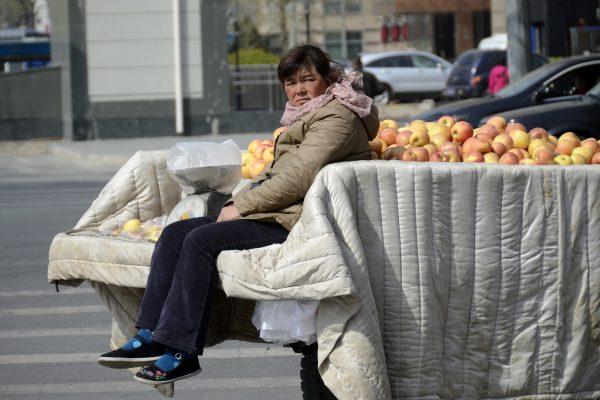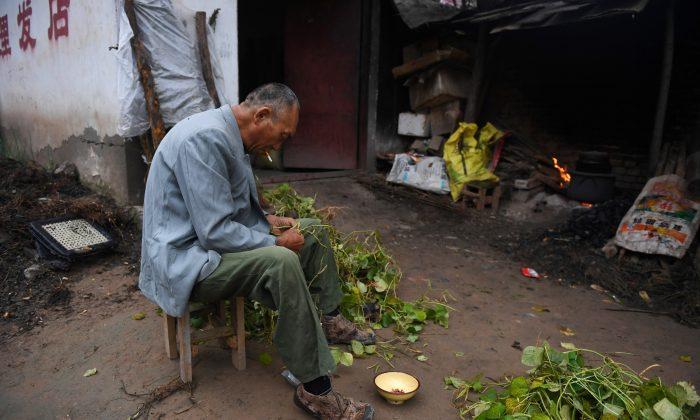Commentators said the new establishment suggested Beijing senses the uncertainty of the rural populace.
Farcical Debut
According to the officials, the rural management’s mission is to crack down on illegal activities such as selling counterfeit or shoddy seeds, pesticides, and veterinary drugs.However, videos showing the mob-style activities of the so-called law enforcers have appeared on Chinese social media Weibo.
The team also publicized its authority using online videos.

The Shackles
Ms. Wang, a Shaanxi resident, expressed her anger about the setup of rural management to the Chinese language edition of The Epoch Times.She said, “It’s just raising some chickens, some pigs, and some produce. What’s there to manage? But those thugs are good at stealing [our] chickens; now the robbing is legalized in the name of rural management.”
The Chinese Communist Party (CCP) has deprived farmers of their retirement funds, demolished their homes, stolen their land, and now has the audacity to guide the farmers. “[If] they think they know farming, they should do it themselves,” she said.
One netizen commented, “There’s urban management in the city, traffic management on the roads, and rural management in the country; aren’t Chinese slaves?”
Illegal Enforcers
Listed in the so-called “measures for administrative enforcement in agriculture” (Measures) that became effective on Jan. 1, article 30 specifies local governments need to ensure they have a budget for the operation and required equipment.In the public bidding notice of a local government in Tibet, Nyingchi (or Linzhi) City listed procurement of electric batons, night vision goggles, stab-resistant vests, flashlights, signal jammers, police ropes, and so on for the operation of the local agriculture management team.
One netizen posted, “The rural team is surely violent … with the police equipment. Watch out, farmers.”
Historian Li Yuanhua said the regime is illegally arming an entity to secure its dictatorship.
He said, “The regime sees the rural area as a source of instability” because of the massive number of unemployed migrant workers who have returned to the countryside.
This rural team uses a typical Communist mass struggle approach. Li said, “They will carry out orders beyond the law but also become an easy scapegoat for the authorities when disasters such as homicides happen in the conflict resulting from the rural management.”
A mainland commentator who wished to be anonymous also said the vast unemployed rural populace is of grave concern to Beijing.
He said, “Throughout the thousands of years of Chinese history, also in the world, is there any other rural management?”
Invading Enemy
Feng Chongyi, associate professor of China studies at the University of Technology Sydney, said the rural areas have been seriously depressed because of the vast poverty. “The poverty alleviation is a lie,” he said.He used the expression, “The ghost is coming,” to describe the teams as they station in the rural areas.
“Ghost” was a word Chinese villagers used to warn each other when the Japanese soldiers invaded China.
During the Second Sino-Japanese War, the Japanese soldiers would steal whatever they could in the village to stock up along their invasion route in the massive land of China. Villagers would warn each other to stay hidden when the armed and violent Japanese soldiers arrived.
Feng said the CCP has been like a ghost stationed in China, in the villages and factories, since its founding.
He said, “Chinese used to have ownership of their property, the land, and the house, such as in the Ming and Qing dynasties, and in the republic, even when the Japanese were invading.”
But since the CCP came to China, it’s worse than the enemy; not only did they rob the people, but also “live off the people,” he said.




